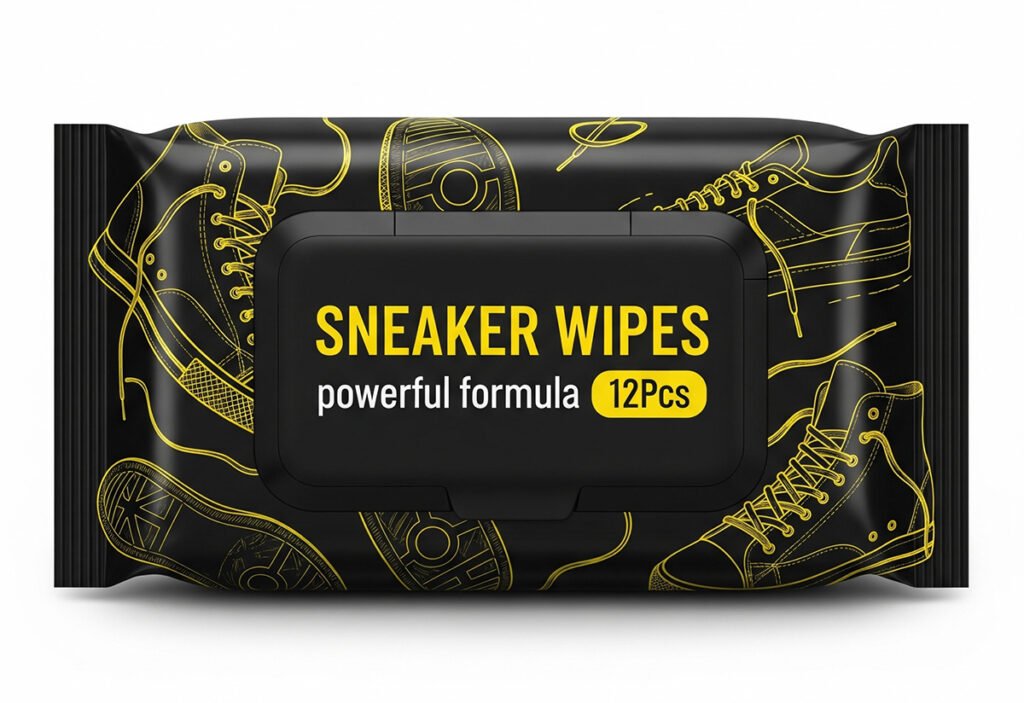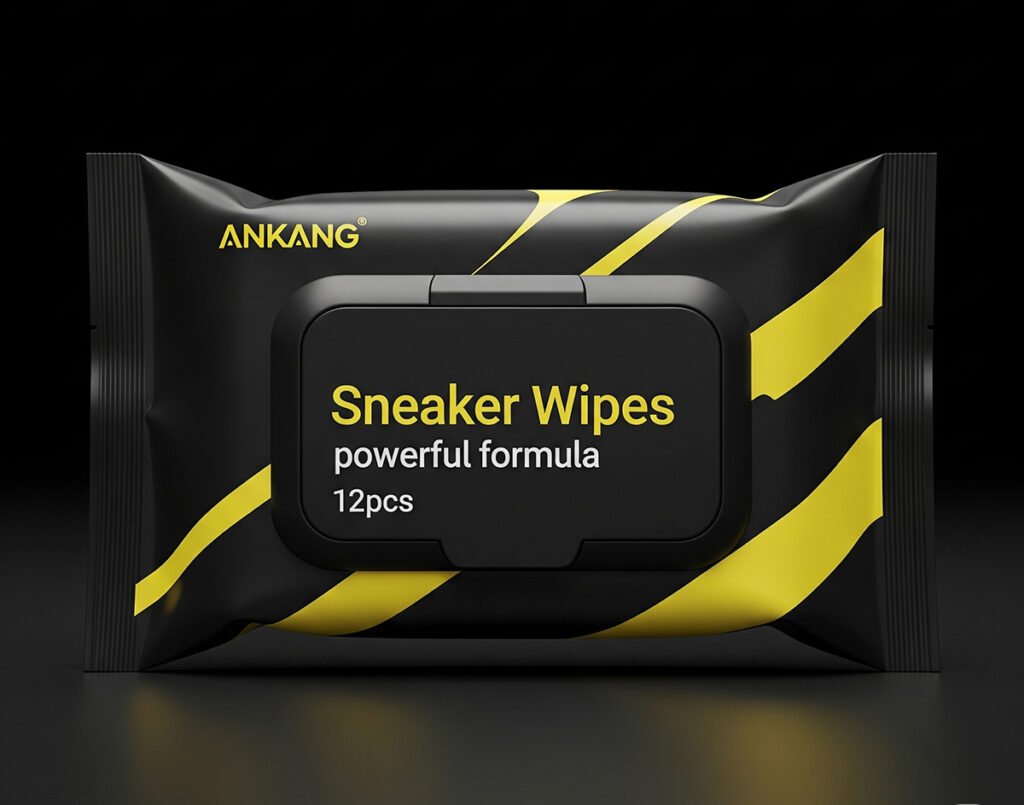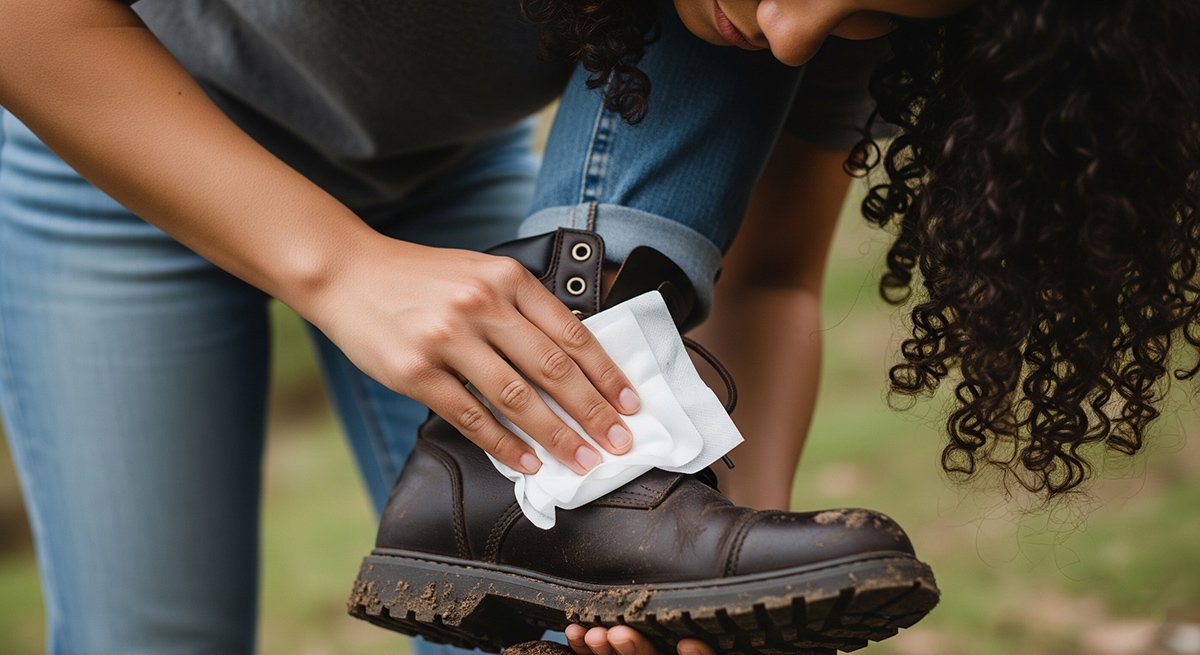Hey there, fellow cleanliness enthusiasts! 👋 From our perspective as a wet wipes manufacturer, we get a lot of questions about the different kinds of wipes out there. One question that pops up a lot, often with a mix of curiosity and perhaps a touch of confusion, is: “What’s the difference between shoe wipes and normal wipes?” It’s a great question, and one we’re excited to tackle head-on. Because honestly, while they both clean, the distinction is much more significant than you might initially assume.
The Universal Appeal of Wipes: A Clean Start
Think about it: from a quick spill on the kitchen counter to sanitizing your hands after a trip to the grocery store, wet wipes have become an indispensable part of our daily lives. They offer a level of convenience and on-the-go cleanliness that’s simply unmatched. We’ve all experienced that moment of needing to clean something, and reaching for a handy wipe. But have you ever stopped to consider what makes that particular wipe effective for its intended purpose? It’s not just about the moisture; it’s about the entire formulation, the material of the wipe itself, and the problem it’s designed to solve. It’s a bit like comparing a specialized tool to a general-purpose one. Both are useful, but one is clearly optimized for a specific job.
Normal Wipes: Your Everyday Cleaning Companion
Let’s start with what we typically refer to as “normal” wipes. This category is vast and encompasses everything from baby wipes to household cleaning wipes, and even many types of disinfecting wipes. At their core, normal wipes are formulated for general-purpose cleaning on a variety of surfaces and, in some cases, human skin.
Formulation Focus: Gentle Yet Effective
When we formulate normal wipes, especially those intended for personal use like baby wipes or facial wipes, our primary concern is gentleness. We’re talking about ingredients that are mild, non-irritating, and often dermatologically tested. Think of things like purified water, mild surfactants (the cleaning agents), moisturizers like aloe vera or vitamin E, and preservatives to keep them fresh. The goal is to clean effectively without stripping natural oils from the skin or damaging delicate surfaces. For household wipes, the focus might shift slightly to more robust cleaning agents that can tackle grease, grime, and common household messes. However, even these are generally designed to be safe for a wide range of common surfaces.
Material Matters: Softness and Absorbency
The fabric of normal wipes is typically soft and absorbent. We often use materials like non-woven spunlace, which is a blend of natural fibers (like cotton or wood pulp) and synthetic fibers (like polyester). This blend gives the wipe a pleasant feel, good tensile strength (so it doesn’t tear easily), and excellent absorbency. For baby wipes, the softness is paramount, as they’re used on delicate skin. For general household wipes, absorbency is key for picking up spills and dirt efficiently. It’s all about finding that perfect balance between strength and a gentle touch.
Common Uses: Versatility is Key
The beauty of normal wipes lies in their versatility. They’re your go-to for:
- Quick clean-ups around the house: Spilled coffee? Muddy paw prints? A normal wipe can often handle it.
- Personal hygiene: Hand and face wiping, especially when soap and water aren’t available.
- Baby care: Changing diapers, cleaning sticky fingers and faces.
- Light dusting and surface wiping: Keeping your desks and counters tidy.
The common thread here is that the surfaces being cleaned are generally less abrasive, less prone to heavy, caked-on dirt, and often require a gentler touch.
Shoe Wipes: The Specialized Cleaners for Footwear Fortitude
Now, let’s pivot to shoe wipes. This is where things get truly specific! Shoe wipes are a specialized cleaning solution designed to tackle the unique challenges of cleaning footwear. They aren’t just normal wipes with a different label; they are carefully engineered for a very particular job.
Formulation Focus: Tough on Grime, Gentle on Materials
This is perhaps the biggest differentiator. Shoe wipes are formulated to deal with the kind of dirt, scuffs, and grime that shoes accumulate. This often includes mud, dust, salt stains (especially in winter!), and general street grit. To combat this, their formulations typically include:
- Stronger cleaning agents: These might be more aggressive surfactants or solvents capable of breaking down stubborn dirt and stains without damaging the shoe material.
- Conditioning agents: Many shoe wipes also contain ingredients that can condition the shoe material, whether it’s leather, synthetic, or canvas. This helps to prevent drying, cracking, and dulling, preserving the shoe’s appearance and longevity. Think of it like a combined cleaner and conditioner for your shoes.
- Water repellents (in some cases): Certain specialized shoe wipes may even include ingredients that offer a slight water-repellent effect, adding an extra layer of protection.
- Odor neutralizers: Shoes, let’s be honest, can get a bit smelly! Some shoe wipes incorporate odor-neutralizing agents to leave your footwear smelling fresh.
The balance here is crucial: powerful enough to clean tough dirt, but gentle enough not to degrade the various materials that make up your favorite shoes.

Material Matters: Durability and Texture for Deep Cleaning
The fabric of a shoe wipe is also different from a normal wipe. While still non-woven, it’s often:
- Thicker and more durable: Imagine scrubbing a caked-on mud stain with a flimsy wipe – it just wouldn’t work! Shoe wipes are designed to withstand more rigorous scrubbing without tearing or pilling.
- May have a textured surface: Some shoe wipes incorporate a slightly abrasive texture to help dislodge stubborn dirt and scuffs. This isn’t rough enough to damage the shoe, but just enough to provide that extra bit of cleaning power.
- Less absorbent (for some types): While they still need to carry the cleaning solution, some shoe wipes might be designed to release the solution more gradually and to be less “soggy” than a baby wipe, for example, to avoid over-saturating the shoe material.
It’s all about ensuring the wipe can withstand the friction and pressure needed to effectively clean footwear.
Common Uses: Footwear-Specific Cleaning
The primary and often sole use for shoe wipes is, you guessed it, cleaning shoes! This includes:
- Removing dirt and scuffs from sneakers, boots, and dress shoes.
- Polishing and restoring shine to leather footwear.
- Cleaning salt stains and other environmental residue.
- Quick touch-ups before a meeting or an event.
Essentially, if it’s on your foot and needs a clean, a shoe wipe is your specialized tool.
The Crucial Differences: Why Specialization Matters
So, why can’t you just use a baby wipe on your muddy sneakers? Or a shoe wipe on your baby’s bottom? The answer boils down to several key differences:
1. Chemical Composition:
- Normal Wipes: Generally mild, pH-balanced (especially for skin), and designed for general, often delicate, cleaning.
- Shoe Wipes: Contain stronger solvents, specific conditioning agents, and sometimes abrasives, all tailored to break down shoe-specific grime and protect shoe materials. Using a shoe wipe on your skin could lead to irritation due to these stronger chemicals. Conversely, a normal wipe simply won’t have the “oomph” to tackle tough shoe dirt effectively.
2. Material Strength and Texture:
- Normal Wipes: Softer, more absorbent, and less resistant to rigorous scrubbing.
- Shoe Wipes: Thicker, more durable, and often have a texture designed for scrubbing. Trying to clean tough shoe dirt with a normal wipe would likely result in the wipe disintegrating or just smearing the dirt around.
3. Purpose and Intent:
- Normal Wipes: Designed for broad applicability, hygiene, and surface cleaning where gentleness and safety are paramount.
- Shoe Wipes: Specifically engineered for the unique challenges of cleaning and maintaining footwear, focusing on effective dirt removal and material preservation.
4. Risk of Damage:
- Using a normal wipe on certain shoe materials (like delicate leather) might not clean effectively and could even leave moisture marks if not dried properly.
- Using a shoe wipe on sensitive skin or delicate surfaces could cause irritation, dryness, or even damage due to the harsher cleaning agents. It’s like using a wire brush to clean a silk shirt – you just wouldn’t do it!
Consider this analogy: think of normal wipes as a general-purpose cleaning spray and a soft cloth. They’re great for everyday tidying. Shoe wipes, on the other hand, are more like a specialized leather cleaner and a sturdy brush – designed for a specific material and a tougher cleaning job. Would you use your kitchen cleaner to polish your leather shoes? Probably not! The same principle applies here.

The Manufacturer’s Perspective: Innovation and Specialization
From our vantage point as a manufacturer, the distinction between these wipes isn’t just about marketing; it’s about dedicated research and development. We invest significant resources into understanding the specific needs of different cleaning challenges. For shoe wipes, this means:
- Material Science: Developing non-woven fabrics that are strong enough to stand up to tough scrubbing, yet gentle enough not to scratch or damage delicate shoe materials.
- Chemical Engineering: Formulating cleaning solutions that effectively break down shoe-specific dirt (mud, oil, salt) while also conditioning the varied materials found in footwear (leather, suede, canvas, synthetics).
- User Experience: Ensuring the wipes are easy to use, convenient for on-the-go cleaning, and leave shoes looking their best.
It’s a continuous process of refinement, driven by the desire to provide the most effective and safe cleaning solutions for every specific need. We’re always pushing the boundaries of what a wipe can do!
In Conclusion: Choose Wisely, Clean Effectively
So, the next time you’re reaching for a wipe, take a moment to consider its intended purpose. While both shoe wipes and normal wipes are fantastic tools for keeping our world clean, they are designed for very different tasks. Understanding the distinctions in their formulation, material, and purpose will not only help you achieve better cleaning results but also ensure the longevity of your belongings and the safety of your skin. Don’t be caught in the perplexing situation of trying to clean your sneakers with a baby wipe or, worse yet, your face with a shoe wipe! Choose the right tool for the job, and you’ll be amazed at the effectiveness and ease it brings to your cleaning routine.
Frequently Asked Questions (FAQs)
1. Can I use normal household wipes to clean my shoes?
While a normal household wipe might remove some superficial dirt from your shoes, it’s generally not recommended for a thorough or protective clean. They lack the specialized cleaning agents and durability found in shoe wipes, meaning they might not effectively tackle tough stains, condition the material, or protect against future damage. You might also find the wipe disintegrates quickly under the pressure of scrubbing.
2. Are shoe wipes safe for all types of shoe materials, including delicate ones like suede or patent leather?
It depends on the specific shoe wipe. Many shoe wipes are formulated for general use on various materials, but some are specialized. Always check the product’s label and instructions before using a shoe wipe on delicate materials like suede, nubuck, or patent leather, as these can be more susceptible to damage from certain chemicals or excessive moisture. There are often specific wipes designed for these materials.
3. Can shoe wipes remove scuff marks?
Yes, many shoe wipes are designed to help reduce or remove light scuff marks, particularly on materials like leather or synthetic uppers. The combination of the cleaning solution and the wipe’s texture can often buff out minor abrasions. However, deep or ingrained scuffs may require more specialized shoe repair products.
4. Do shoe wipes expire?
Yes, like most wet wipe products, shoe wipes do have an expiration date. Over time, the cleaning solution can degrade, and the moisture can evaporate, making the wipes less effective or even dry out completely. Always check the packaging for the expiration date to ensure optimal performance. Store them in a cool, dry place to prolong their shelf life.
5. Can I use shoe wipes to make my shoes waterproof?
No, shoe wipes are generally not designed to make your shoes fully waterproof. While some specialized shoe wipes may contain conditioning agents that offer a minor degree of water repellency, they are not a substitute for dedicated waterproofing sprays or treatments. For true waterproofing, you’ll need to use a product specifically designed for that purpose, applied after cleaning.





